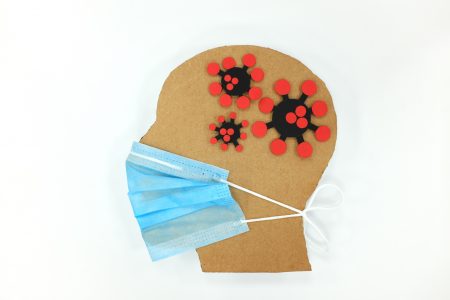This summer, as many as one in four young adults reported seriously considering suicide in the 30 days before being surveyed. Just last month, the Centers for Disease Control and Prevention (CDC) reported over 81,000 overdose deaths between May 2019 and May 2020, the highest number ever recorded in a one-year period. While the U.S. mental health and addiction crisis existed before COVID-19, clearly, it has been exacerbated by the isolation, anxiety, and grief associated with a global pandemic that is still far from over.
The government’s response to COVID-19 thus far has been slow and too small to truly address the mental health and addiction crisis before us. When Congress passed the original CARES Act in April, roughly 425 million—just .02% of the total amount—was dedicated to expanding treatment services. Consequently, The Kennedy Forum led advocacy efforts in April, May, June, and December urging Congress to pass emergency appropriations in order to shore up a more substantial response. Thankfully, $8.5 billion was allocated in October through an updated Health and Economic Recovery Omnibus Emergency Solutions Act (HEROES) Act, and $4.25 billion followed in a smaller relief package finally enacted in December.
Last week, we were also happy to see President-elect Joe Biden’s “American Rescue Plan,” a proposed $1.9 trillion COVID relief and economic stimulus package. If passed by Congress, the package will provide an additional $4 billion to the Substance Abuse and Mental Health Services Administration (SAMHSA) and the Health Resources and Services Administration (HRSA) to increase access to treatment and services. When combined with the $4.25 billion earmarked for mental health in December, that would bring total funding from just the past month to over $8 billion, effectively matching the amount included in the October HEROES Act. While long overdue amid historic rates of suicide and overdose deaths, this amount of funding can make a meaningful difference in America’s ability to facilitate better treatment for those struggling with mental health and substance use disorders, and support stronger prevention efforts.
President-elect Biden’s proposal also includes provisions to support Americans who lack health insurance, an immense barrier to getting help. Through subsidies for the often prohibitively expensive COBRA coverage (federal “continuation of health” benefits provided under the Consolidated Omnibus Budget Reconciliation Act), and an expanded Premium Tax Credit value that ensures people pay no more than 8.5% of their income on coverage, the proposed plan could help millions of additional Americans obtain health insurance.
Additionally, the “American Rescue Plan” calls for funding to hire 100,000 community health workers who can help with vaccine outreach, contact tracing, and bolstering the country’s public health infrastructure. While these roles are certainly welcome and necessary, The Kennedy Forum feels the push to expand our country’s public health infrastructure should more explicitly include workers who are focused on connecting people to mental health and addiction treatment.
Overall, however, we are greatly encouraged by the new relief package and urge Congress to pass it. As the U.S. enters a new chapter of the pandemic—one that includes the promise of a vaccination, but also the threat of new, more contagious virus strains—now more than ever, our leaders must work hard to safeguard total health. The actions we take now will impact generations to come, not just economically, but also through our ability to heal and recover from collective trauma.
Please contact your members of Congress and tell them mental health is essential health – and to pass the “American Rescue Plan” without delay.

